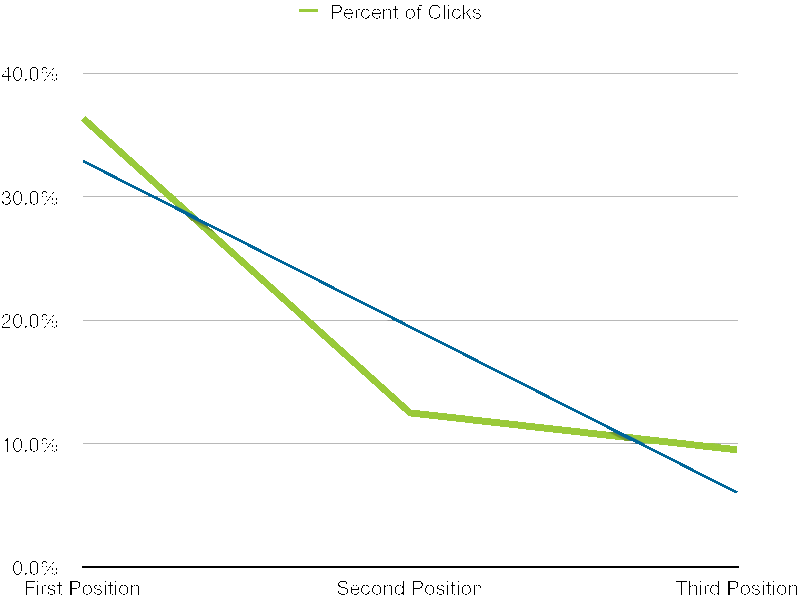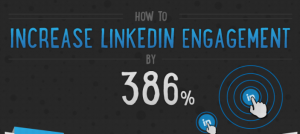“Search ranking is no longer something that you have to worry about”.
Yup, that’s the title of an article that I just ran across! I can’t help but to feel that this has to be the worse advice that anyone could possibly give.
I have to wonder if people are writing articles like this one, that discounts the importance of search ranking, because they’ve not kept up with all of the changes that have happened over the last couple of years, with search, and how to stay optimized or if they really believe that search is no longer important. If it’s the later, then they are drastically mistaken.
According to a Brightedge Research report on organic search, they found that organic search remains the dominant source of website traffic at 53.3% of traffic coming to a website. This is in comparison to organic social media sending 5% of a website’s traffic, while commanding much more effort.
The research also shows that search is the dominant channel for providing website traffic for both B2B companies as well as B2C companies.
Clearly, search is still alive and well! Ignoring this channel will have a negative impact on your business, regardless of the industry that you are in.
Where you rank is also important.
 According to Search Engine Watch, websites that gain the number one position on the search engine results page (SERP) will receive an average of 36.4% of the clicks for that key phrase. The resulting page that comes in at number two on that same SERP will get 65.68% less clicks than the number one ranked page. And if your web page is number three you’re going to get 73.86% less traffic than the number one ranked web page. These are huge drops from the number one position.
According to Search Engine Watch, websites that gain the number one position on the search engine results page (SERP) will receive an average of 36.4% of the clicks for that key phrase. The resulting page that comes in at number two on that same SERP will get 65.68% less clicks than the number one ranked page. And if your web page is number three you’re going to get 73.86% less traffic than the number one ranked web page. These are huge drops from the number one position.
There is also a side benefit to keeping your website ranking in the search engines…keyword research. Think about keywords this way, keywords are insights into what your customers are thinking. The phrases that your customers type into the search box is indicative of the questions that they are looking to answer.
By doing on-going keyword research for organic optimization, you’re continuing to gain further insights into what your customers are hoping to learn from a website. Use that information to help you know what information to include within your website. If your customers are asking questions, wouldn’t you like to know what they are so you can have the answers for them on your website?
Ok, so I hope I’ve made my case on why SEO is still relevant and important. Now let’s take a look at the six most common reasons why website’s pages aren’t ranking in search engines.
You’re Too Slow
This is one of the biggest reasons why a website’s page(s) isn’t ranking and as a bonus, it’s also one of the biggest reasons why people that visit your site leave without engaging with your site.
Let’s look at your site’s speed from the search engine’s perspective. Google has identified that user experience is now a ranking signal. The most recent algorithm update that Google has released, Web Core Vitals, has identified a website’s speed as a key metric when measuring user experience.
This means that with this latest update, a lack of sufficient speed will create a negative impact on your site’s ability to rank in the top positions for key phrases that are important to your business.
By now you’re probably wondering what is the speed that you need to achieve with your website. There is a difference whether you’re looking at speed from the user’s perspective or from Google’s perspective.
From the user’s perspective, your website’s pages have to load in no more that 4 seconds. That seems to be the length of tolerance that today’s website site users have for waiting for a page to load. If your page takes longer than four seconds to load, your visitors are going to leave your site.
If, however, you’re looking at speed from Google’s perspective, its not quite as simple. Google is measuring speed beginning when the website’s page is first called by a user, to the point that the page’s main content is loaded. This is called Largest Contentful Paint (LCP) and Google’s expectation is that this should happen in less that 2.5 seconds.
If you’re curious as to the speed of your website, you can test it on Google’s speed test, here.
You’re Not Mobile Friendly
Just like page speed, mobile-friendly is important due to Google’s ranking algorithm and it’s important because your website users are using mobile devices to access your site and they have little patiences for poor mobile performance.
On April 21st of 2015 Google implemented an algorithm update that included mobile friendliness as a ranking signal. Mobile friendly looks at a website’s user experience on a mobile device (phone or tablet).
There are a number of elements to a website being mobile-friendly, in fact more than we have the room to cover in this post, but some of the more important elements are:
- Responsive design: Responsive design is a manor of design and development of a website that will “adjust” the layout of a website to the screen resolution of the device that the user is using to view the website. In other words your site has to be as usable on a phone as it is on a desktop.
- Content Size: The user should be able to read the content on your website from their mobile device without having to zoom in. Again, this is a user experience issue.
- Button Size: It’s important to realize that your website’s users don’t have mice attached to their phones. Call to action links or buttons must be able to be used with the tip of a finger which takes up a lot more screen real estate that a mouse pointer.
To up the importance of mobile-friendly, Google is now indexing the mobile versions of websites for indexing and ranking. If you have a site that isn’t mobile-friendly, you will be hurt when it comes to trying to get to that number one position on the SERP.
In addition to the ranking importance of having your site mobile-friendly, there’s also the importance of mobile-friendliness when it comes to your website’s visitors. If their experience with your website on a mobile device is bad, they will leave. Once they leave the odds are that they will never return.
You’re Not Considered An Authority
Google has said that they want a website to have content that is original, unique and valuable for the website’s users. This is called content quality and it can be a bit subjective but there are some things that will hurt your website when it comes to quality content.
If you duplicate content from another website, this is a duplicate content penalty and will cost you when it comes to your ranking position, not to mention that you’re sealing someone else’s copyright.
There are a number of platforms that are providing some assistance in “measuring” the overall quality of a website’s content. Some refer to the measurement as domain authority and some refer to it as website authority. Regardless of what you call it, these are valuable metrics that can assist you in determining the quality of your content.
Essentially, domain authority (or website authority) evaluate a website’s content to identify the level of authority that is being demonstrated on a website, for a particular topic. The concept is that the more content that you have on a particular topic and the more frequently that you update the content on that topic, the more of an authority you are on that subject.
If you’re considered an authority on a subject then Google will identify your website is a value for the visitors and that will positively impact your ranking.
To get a sense of your website’s authority, you can run a report from Moz.
You’re Not Secure
There are two protocols on the internet for sending data back and forth from a website to a website visitor. The two protocols are HTTP and HTTPS, one is securely encrypted (HTTPS) and one is not (HTTP).
Back in the day, the only people that really worried about having a secure connection for their visitors were companies that were selling something on their website, like an e-commerce site.
Today, security is a whole different ball game. Google has been pushing security for all types of websites for a while. In fact Google feels so strongly about security that in 2014 they made the HTTPS protocol a ranking signal.
Let’s take a look at what HTTPS is and why you should be using it, even if you’re not selling anything online.
HTTPS is, as I said, a protocol for delivering your website’s information to your website’s visitor. Essentially, without getting into the technologies, HTTPS encrypts the information that your website sends to your website visitors browser and then also encrypts the information that your website’s visitors send back to your website.
Think about this in a scenario where one of your website visitors sign-up to receive your newsletter. In an un-encrypted connection, the information that they send to the form that you have on your site to sign-up for your newsletter, would be susceptible to hackers tracking and collecting that information. This would mean that everyone that registers for your newsletter could have their private data (name, company, email address, etc) captured by a hacker.
Another very valid reason to make sure that your website is using the HTTPS protocol is trust. Trust is a very large component of getting people to do business with you and online your prospective customers are looking for anything that will indicate to them that you can be trusted. An HTTPS connection will demonstrate your desire to keep them safe.
The third and quite possibly the most important reason to utilize a HTTPS protocol for your website is that the Internets most used browser, Google’s Chrome browser, is flagging websites that are not utilizing the HTTPS protocol making it more difficult for people to get to unsecured websites.
Conclusion
So, in the end the main point that I’d like to make is that SEO is still very relevant in today’s marketing strategies. No, SEO isn’t the new shiny object that it once was and yes, optimizing for search is a completely different game than it was even a year ago, but that doesn’t mean that it’s no longer important.
Digital & Social Articles on Business 2 Community
(72)






